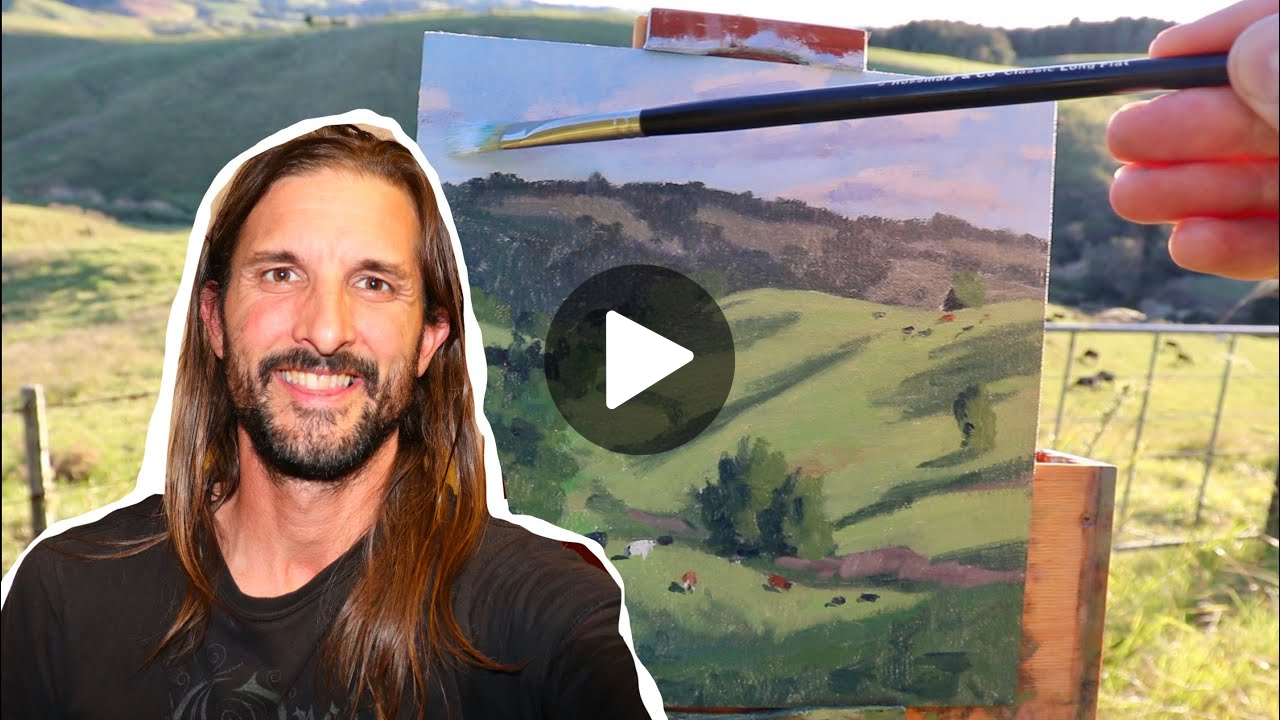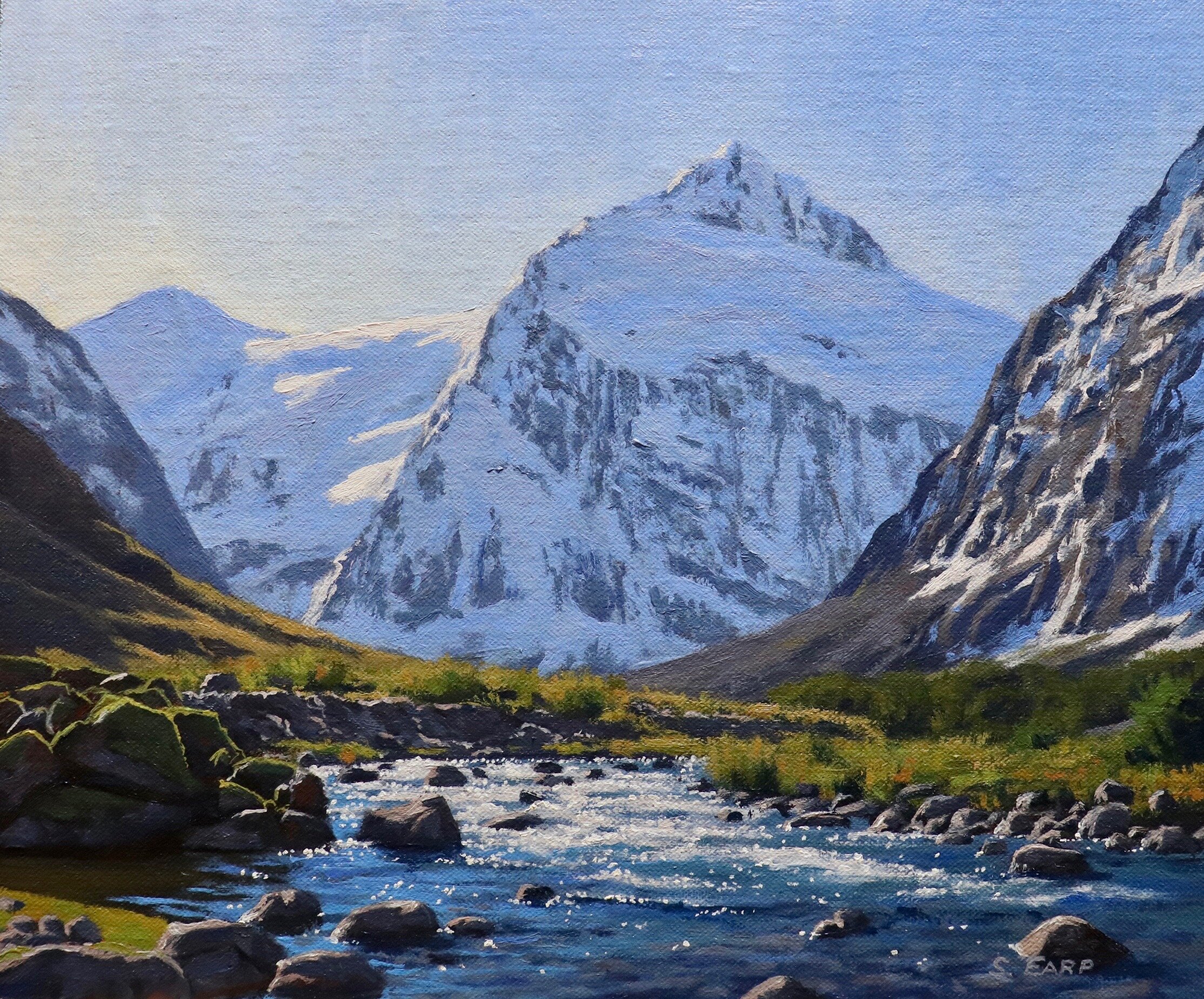
In this written painting tutorial I show you how to paint this mountain landscape that features a cool mountain stream. The location is Mt Talbot in Fiordland National Park in southern New Zealand and it is a scene I have painted many times before as it is such epic landscape to paint.
I have painted this art work in oils but you can use acrylics instead.
Reference Photo
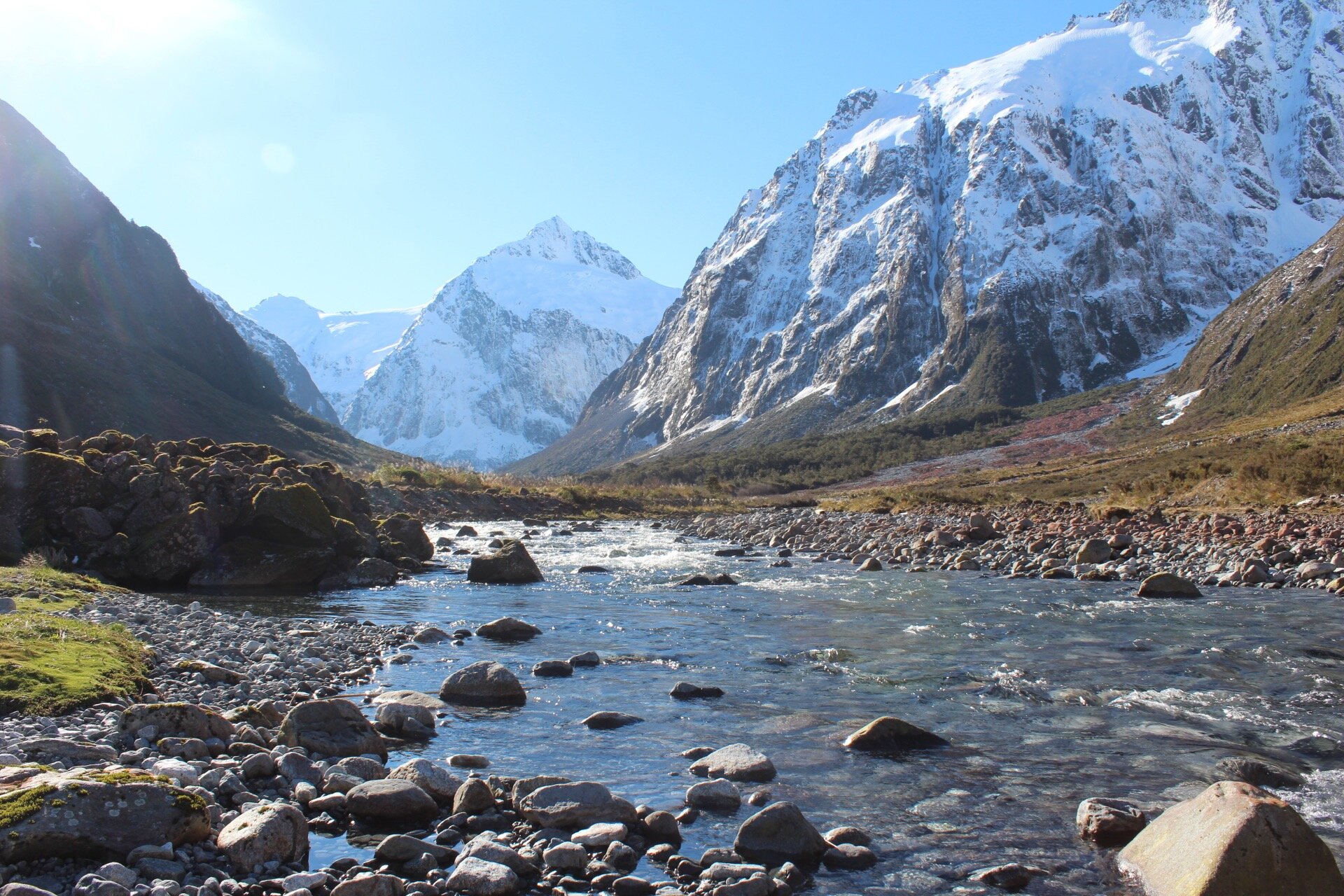
Composition
The distant mountain called Mt Talbot is the main area of interest within the painting. The mountain stream which is an important component to the composition forms an ‘S’ or ‘Compound Curve’ composition which adds flow and rhythm to the painting. The stream leads the eye towards the mountain.
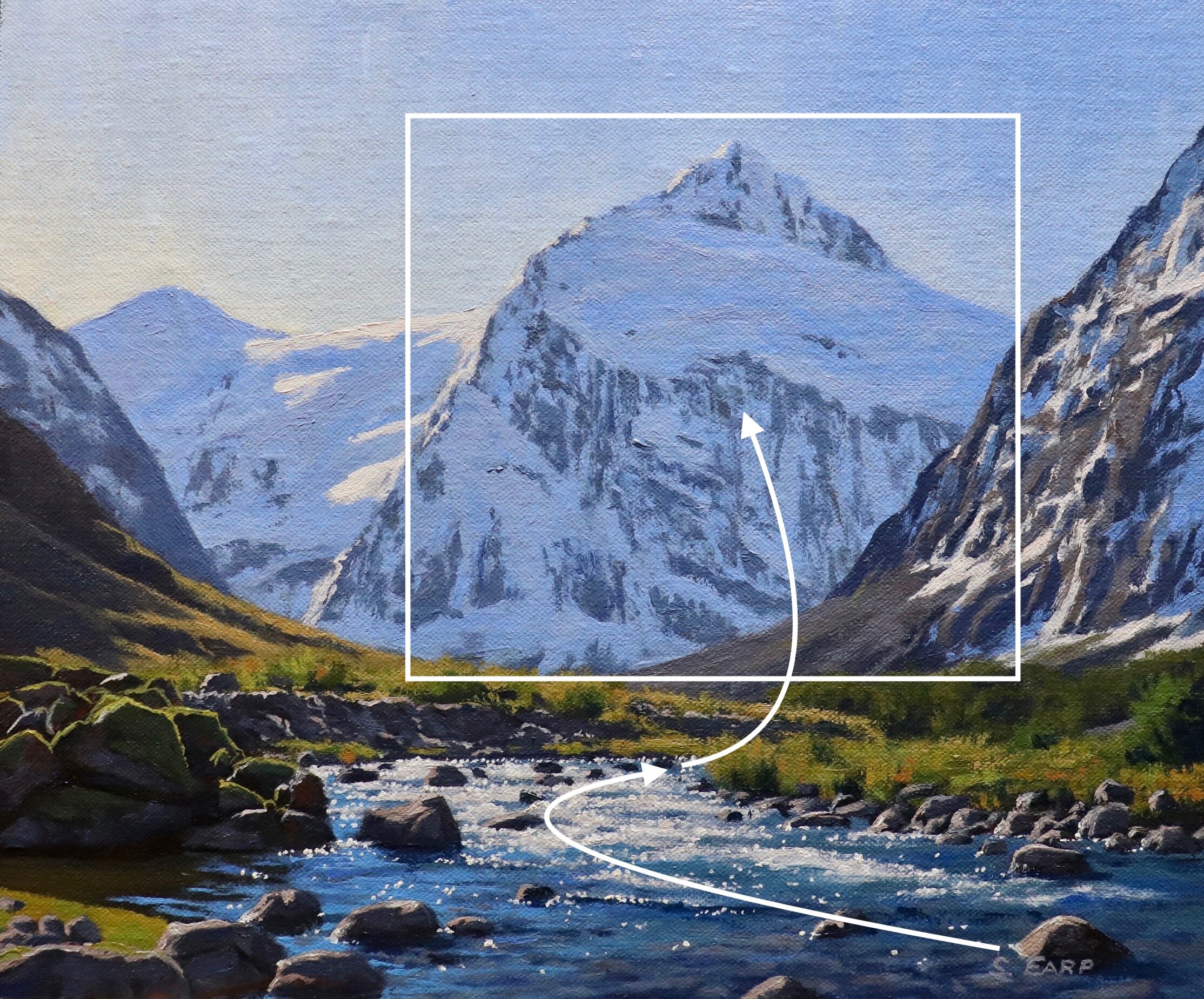
Colours
I painted this artwork using oil paint and the colours I used in this painting are as follows:
- Titanium white
- Burnt sienna
- Yellow oxide
- Cadmium yellow
- Cadmium orange
- Quinacridone crimson
- Ultramarine blue
- Cobalt blue
- Cobalt teal
- Phthalo green
Brushes
Here is a list of the brushes I used in this painting:
- No.6 flat
- No.2 flat
- No.2 filbert
- No.2 round
- No.1 round
- No.0 round
- No.00 round
- 3/8 dagger
- 1/4 dagger
Painting Tutorial
I am painting on a 10” x 12” linen panel that I toned with a layer of burnt sienna. The burnt sienna adds vibrancy to the painting.
I sketch out the composition using a No.1 round brush with burnt sienna mixed with Liquin Original (Liquin). I am using Liquin as a medium to thin the paint, it also has the advantage of speeding up the drying time.
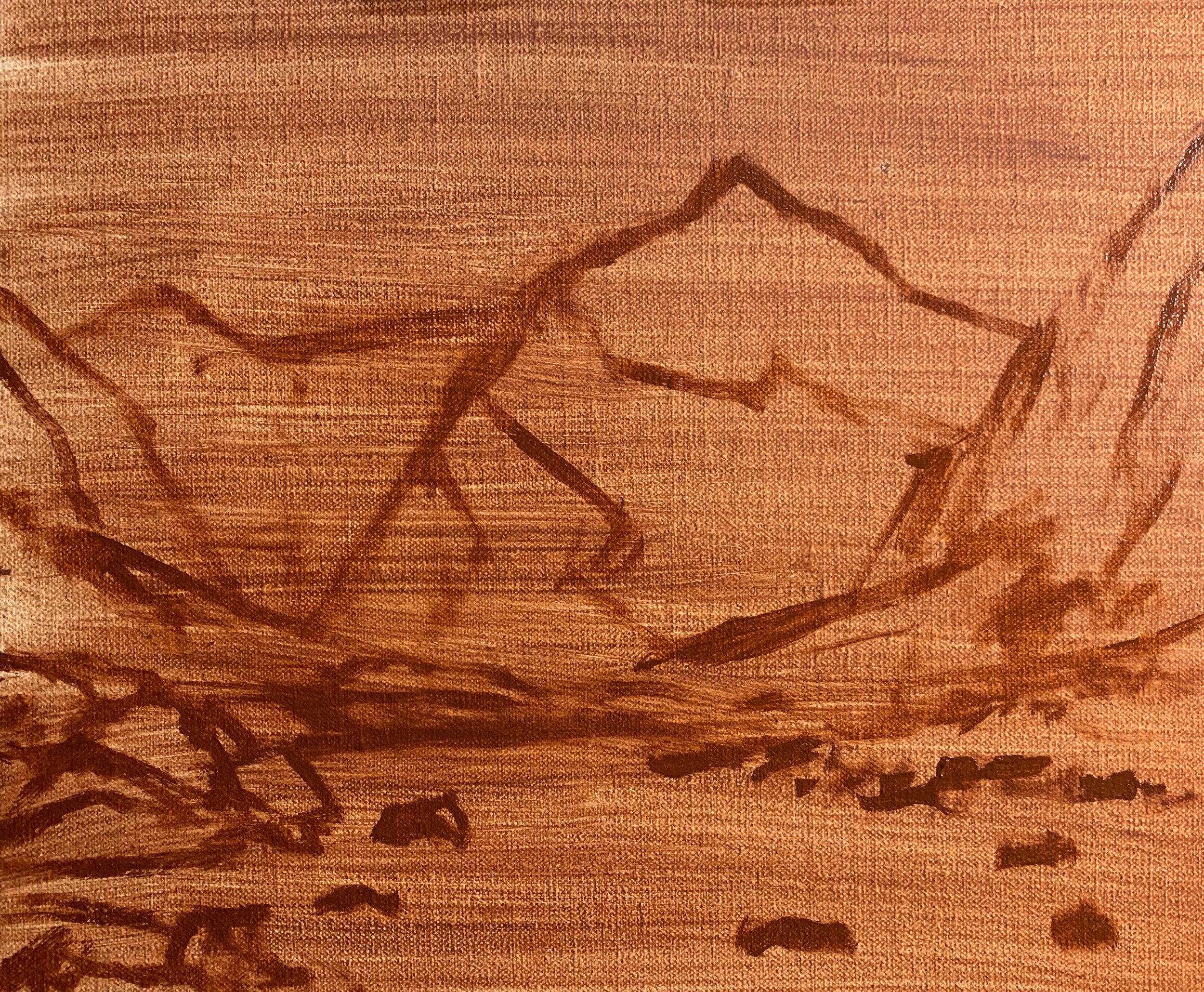
Whenever I begin a painting I always like to quickly establish the tonal dynamic so I can create atmospheric depth and so I paint my dark values first. Most of the dark values are found in the shadows areas.
I begin by painting the exposed rock faces in Mt Talbot, the distant mountain. For this I mix a combination of ultramarine blue, burnt sienna and titanium white. I use the same colours for the mid ground mountains but with less titanium white so the value is darker.
As I work my way forward towards the foreground I use even less titanium white but I also mix in a little quinacridone crimson to give the shadow a violet tint.
The rock shadows in the foreground are dark and a near black in places so I mix ultramarine blue and burnt sienna together.
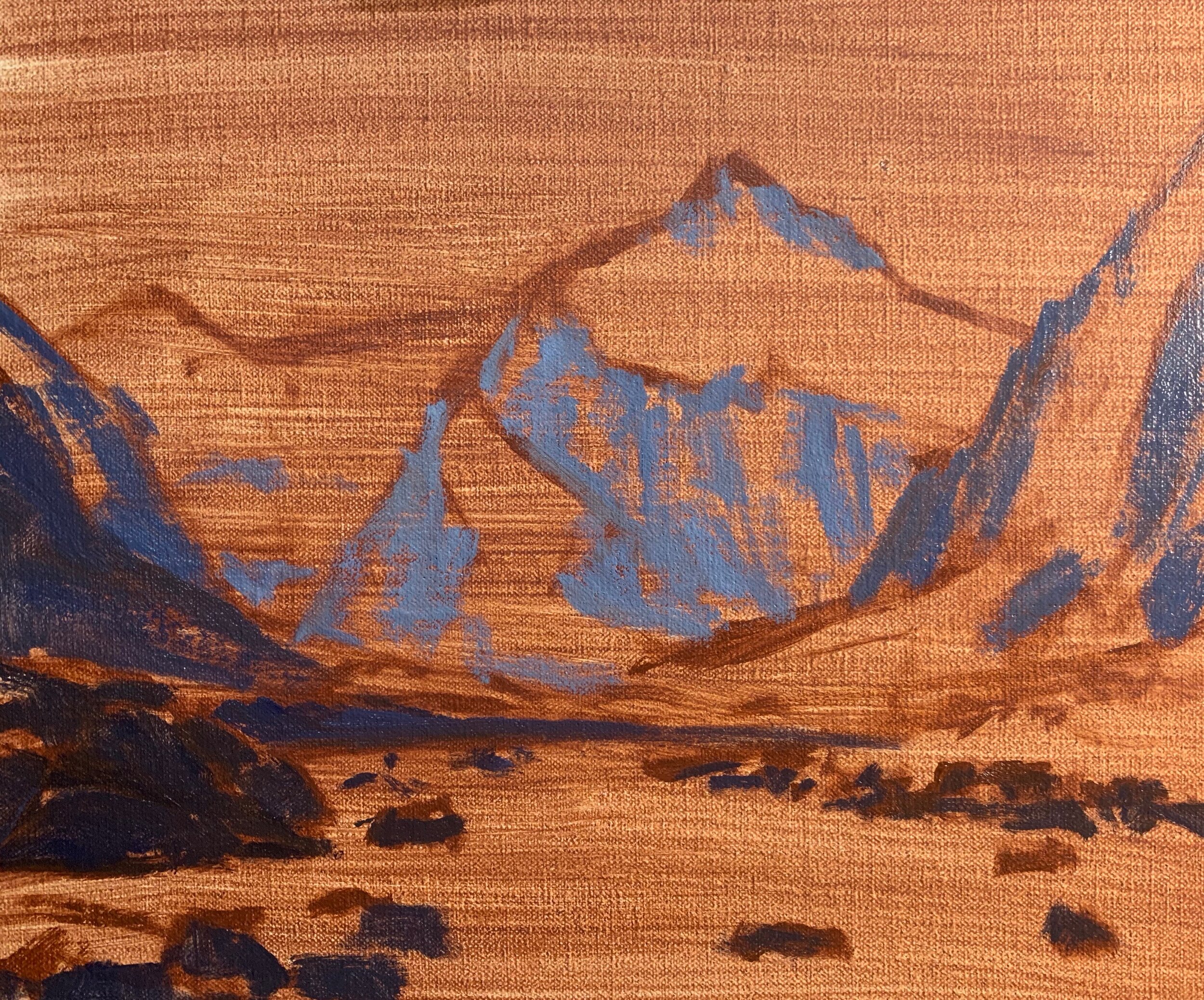
Once I paint the shadows I start with the zone furthest away in the painting, which is the sky and then I work my way forward.
The sky is one of the lightest values in the painting and for this I mix titanium white, ultramarine blue and cobalt blue.
I am able to use the same colours for the snow that is in shadow in the mountains but I use less titanium white.
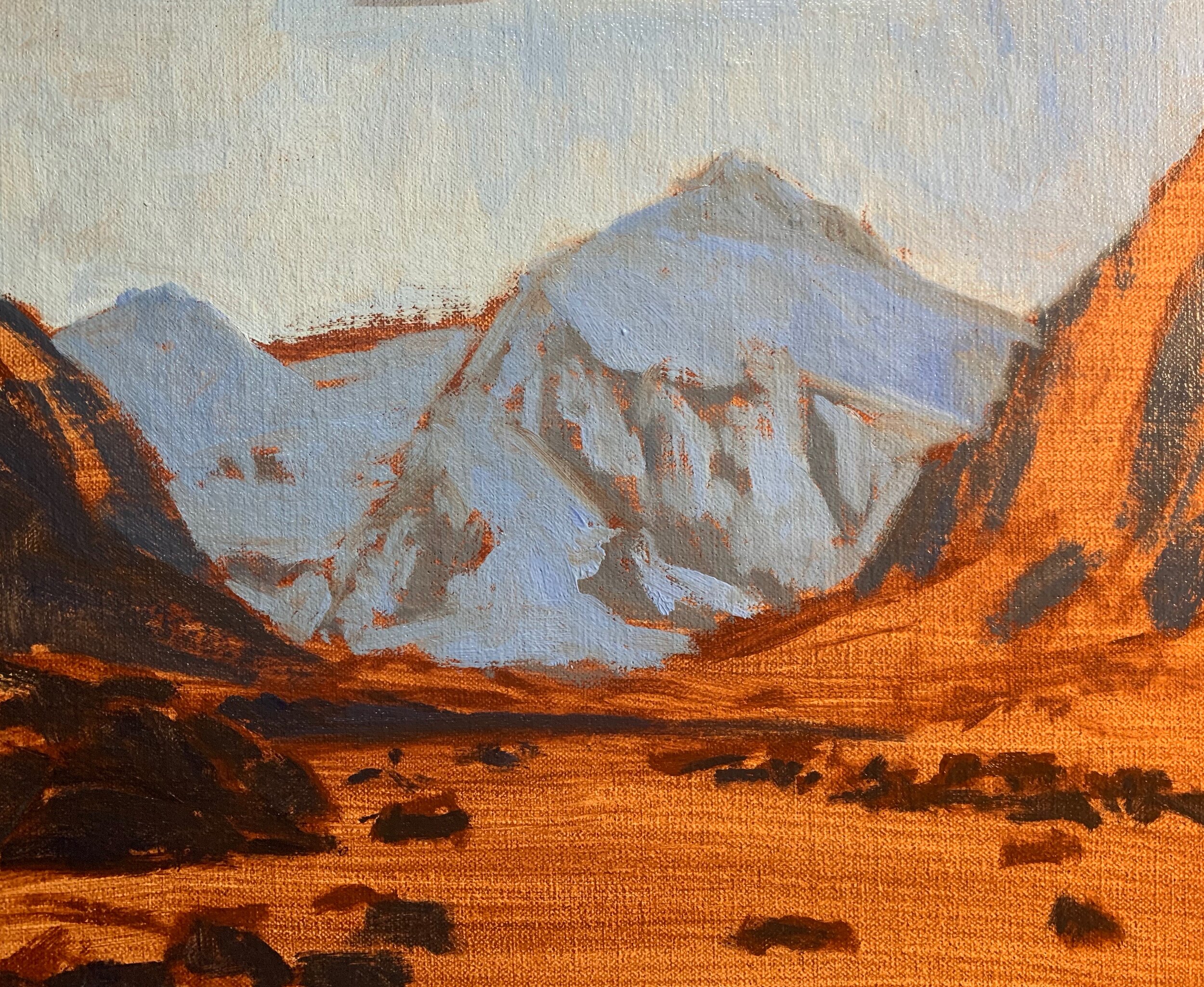
Now that the mountains are underway I mark in some of the snow highlights with a mixture of titanium white and a little burnt sienna. The burnt sienna helps to make the snow sit back in the painting.
I use the same mix for the snow in the mid ground mountain on the right and the white water in the stream.
I paint the water with a mix of ultramarine blue, yellow oxide and titanium white.
The foliage in the mid ground is a mix of ultramarine blue, yellow oxide, quinacridone crimson and titanium white in varying amounts to create some different greens.
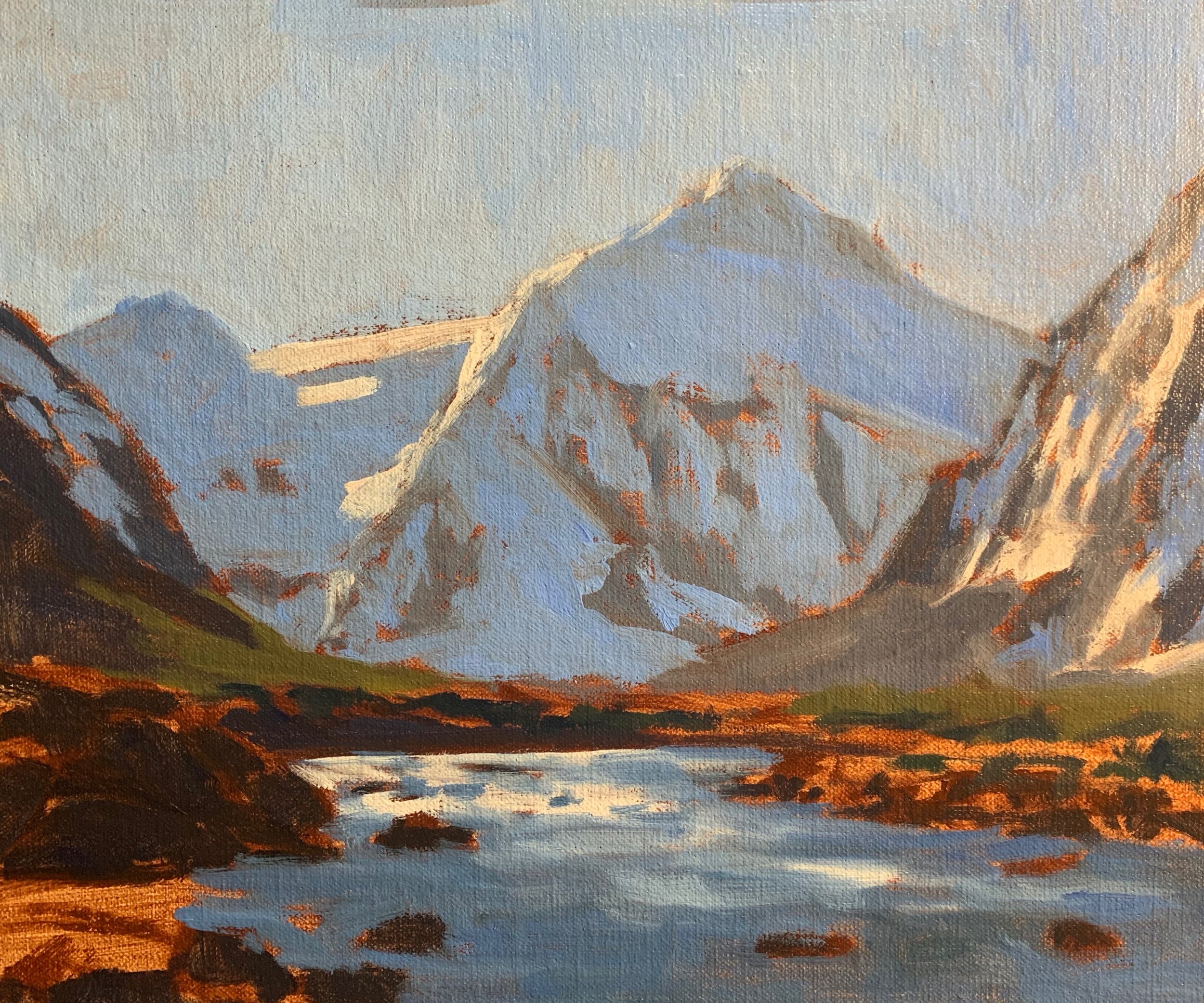
I finish up the blocking-in stage by tidying up the painting and then allowing it to dry so I can begin the modelling stage and adding details.
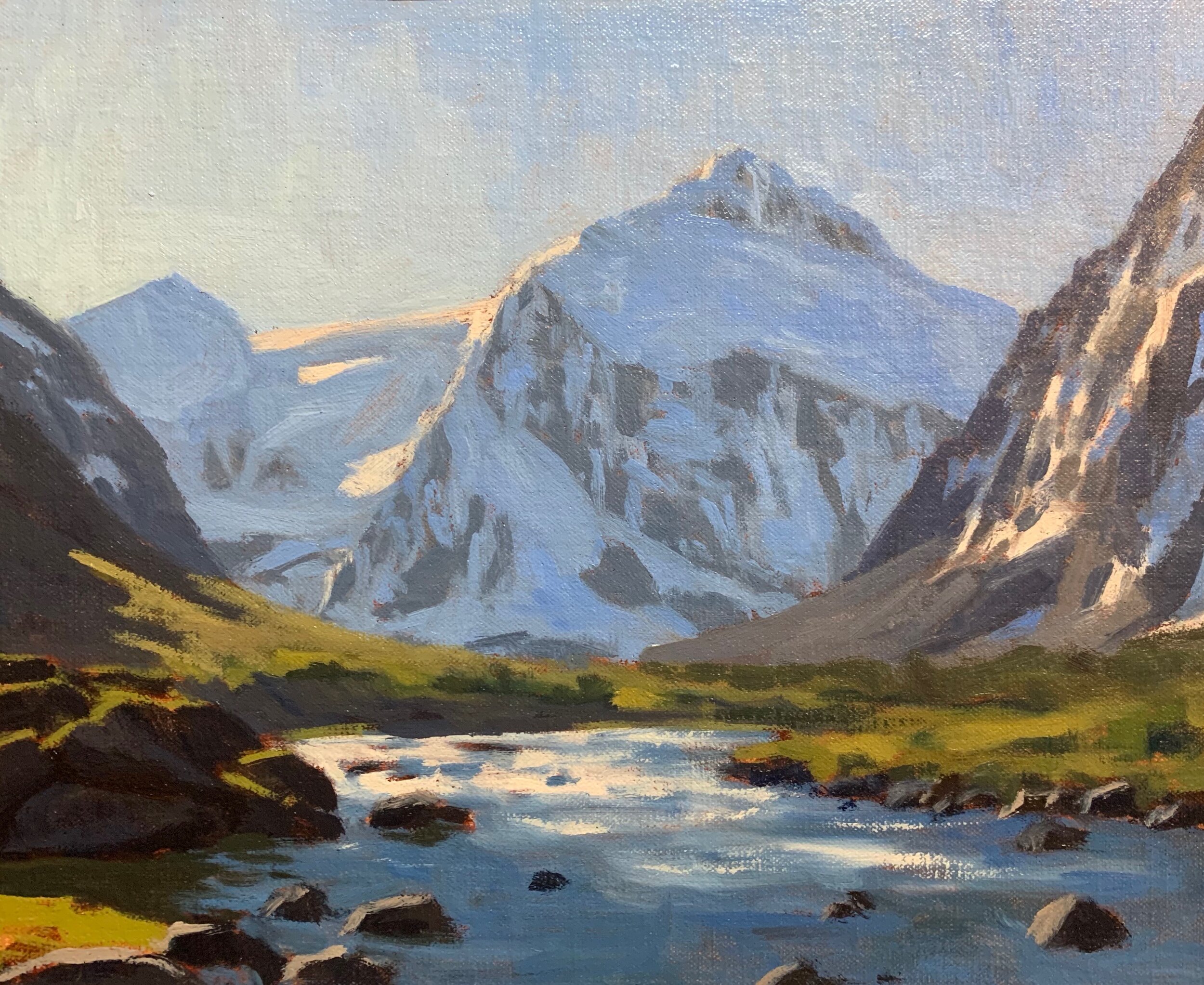
Once the painting is dry I begin the modelling process by starting with the zone furthest away in the painting which is the sky. I wanted to add more of a yellow element to the sky to indicate the strong afternoon sunlight.
I mix up a combination of titanium white with yellow oxide and paint the sky around the left side of the painting being sure to fill in the negative spaces around the mountain tops. I paint the rest of the sky with titanium white mixed with ultramarine blue and cobalt blue. I then carefully blend these colours together to form a transition zone between the warm light and the cool sky.
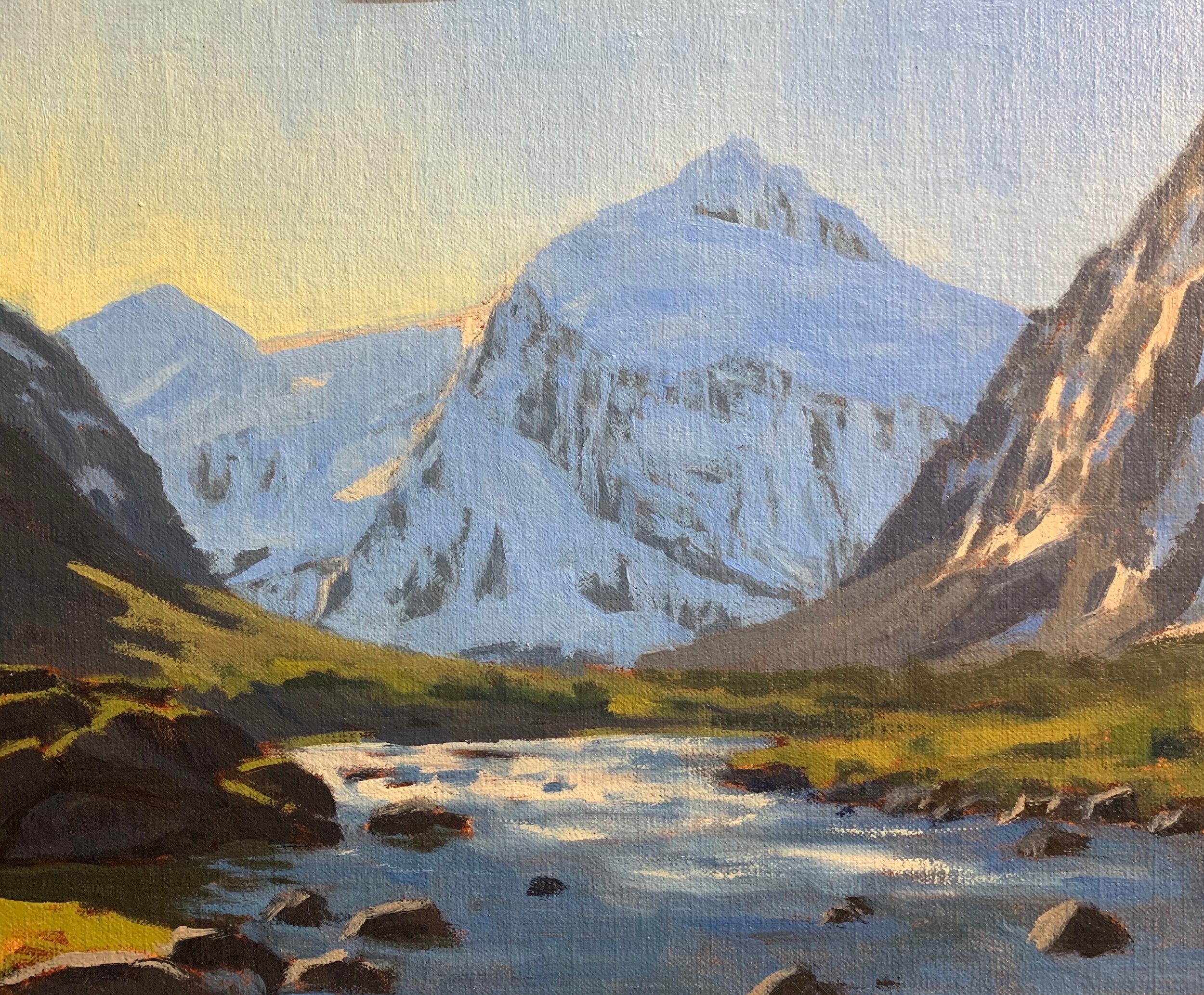
I add finer detail to the snow on the mountain slopes as well as the exposed rock faces. I am still using the same colours I used during the block-in stage but my brushes are now getting smaller and I begin using No.1 round brushes for fine details.
I paint reflected light in the snow shadows and I’m still using ultramarine blue, cobalt blue with titanium white but I make the value lighter. I can even mix in a little quinacridone crimson.
I begin adding detail to the stream first by working on the white water rapids. I mix titanium white with a little ultramarine blue and burnt sienna as I want the value to be a little darker. By doing this it allows the lightest values that I’ll be adding at the end of the painting to really stand out.
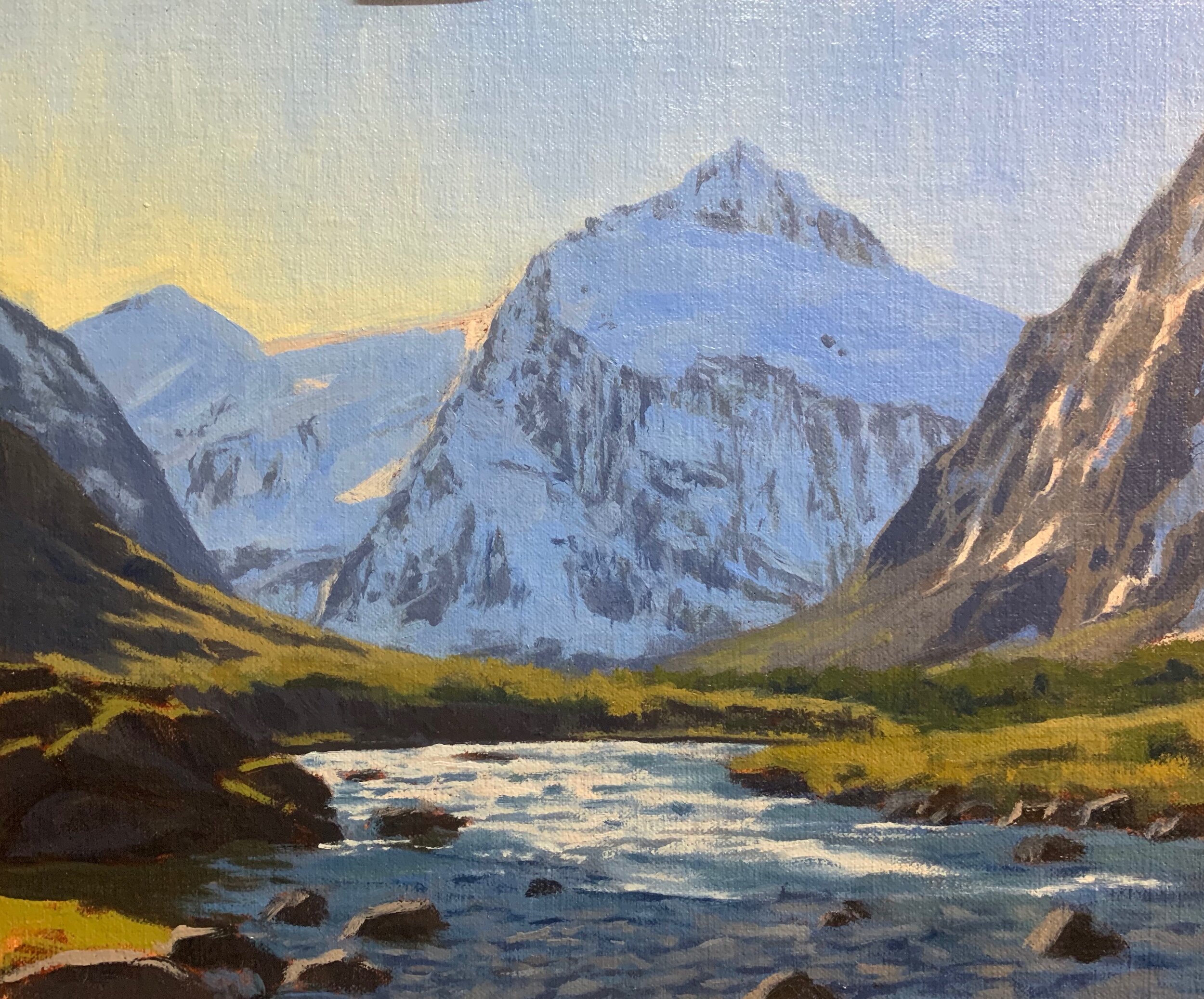
I add further details to the mountains, refining the snow and the exposed rock faces. I also add more details to the mountain on the right side of the painting, building up the form and details within the mountain slope.
I add more highlights to the snow on Mt Talbot in the distance using titanium white with a little burnt sienna mixed in.
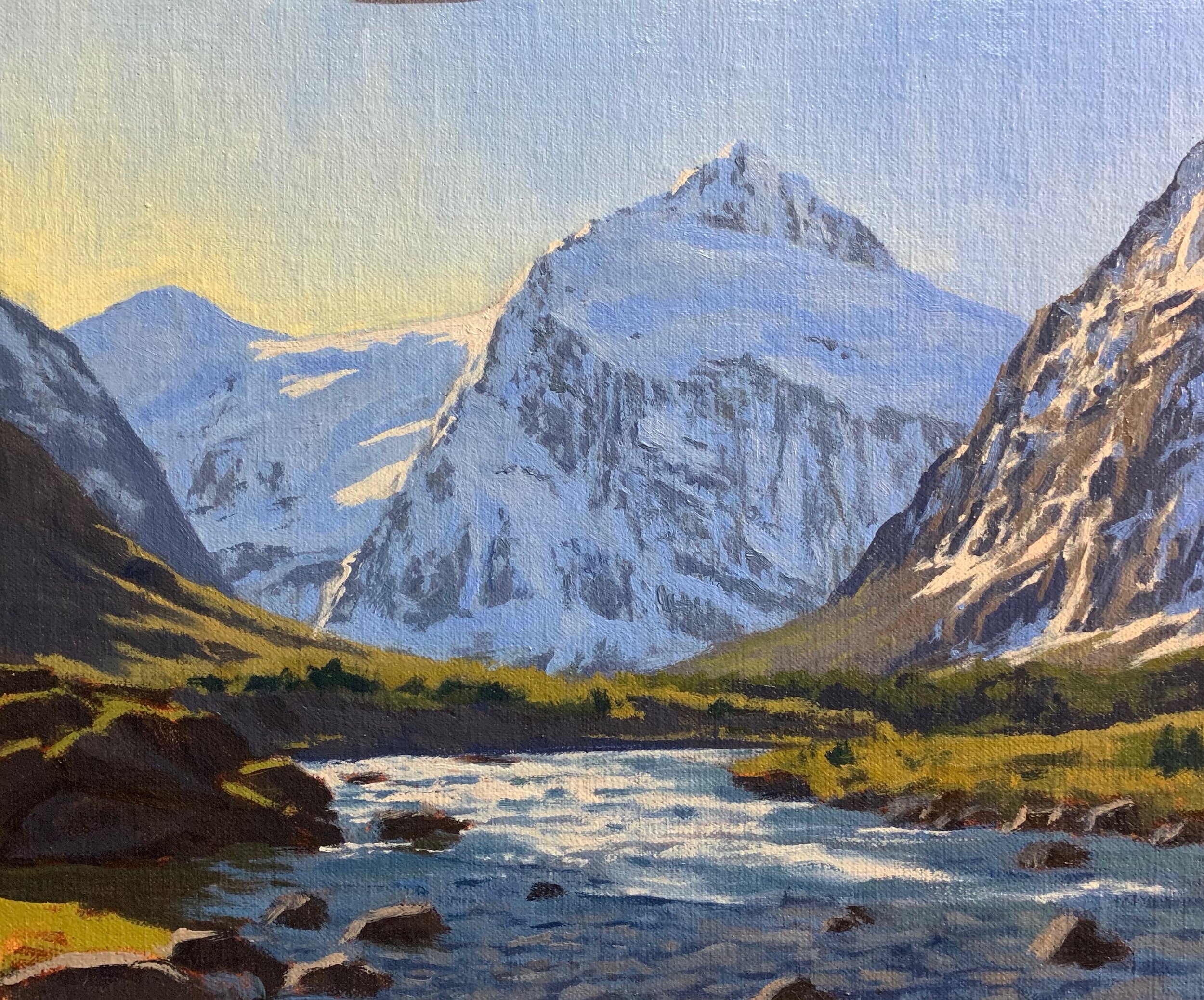
I paint the visible submerged stones and boulders at the bottom of the stream. The water has distorted the rocks as they are submerged beneath the stream and so they have a blue cast to them.
I paint the shadows of the stones first with a mix of ultramarine blue, burnt sienna and titanium white. I use the same colours for the stones that are in the full sunlight but I use more burnt sienna and titanium white in the mix.
I work on the foliage, grass, trees and shrubs in the mid ground using a few different greens. I started with a mix of yellow oxide, ultramarine blue and then added other colours such as titanium white to desaturate and make the value of the colour lighter. I can increase the saturation by mixing in cadmium yellow, phthalo green or cobalt teal. I can make the greens look more organic by rounding them off with either quinacridone crimson or cadmium orange.
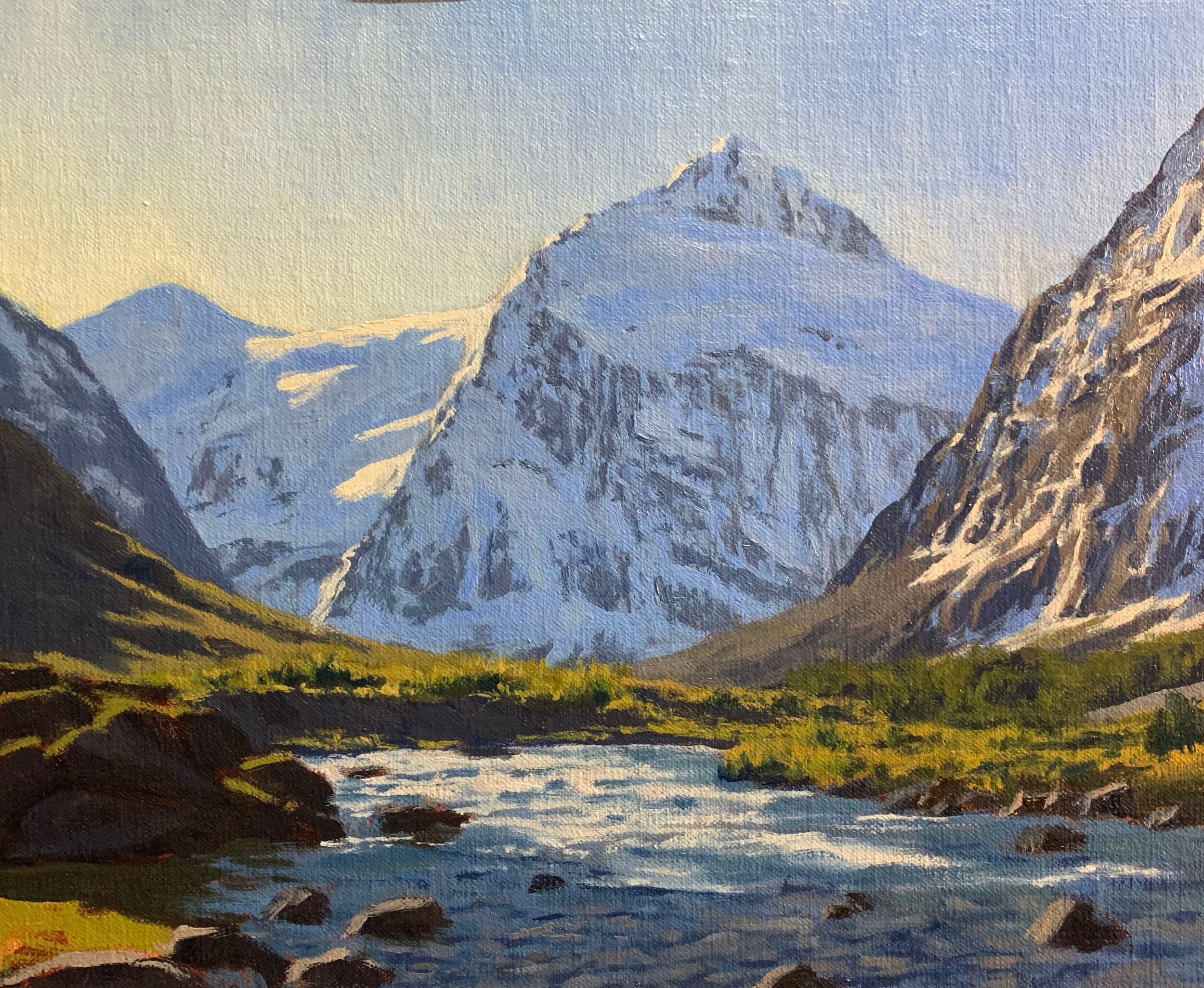
I begin adding highlights to the mountains and the stream. I selectively paint some highlights in the mountain snow and this is a mix of titanium white with a little yellow oxide. The yellow oxide adds warmth to the snow.
I’ve saved my lightest tones for the water and I paint the shimmering reflected sunlight with a mix of titanium white and a little yellow oxide.
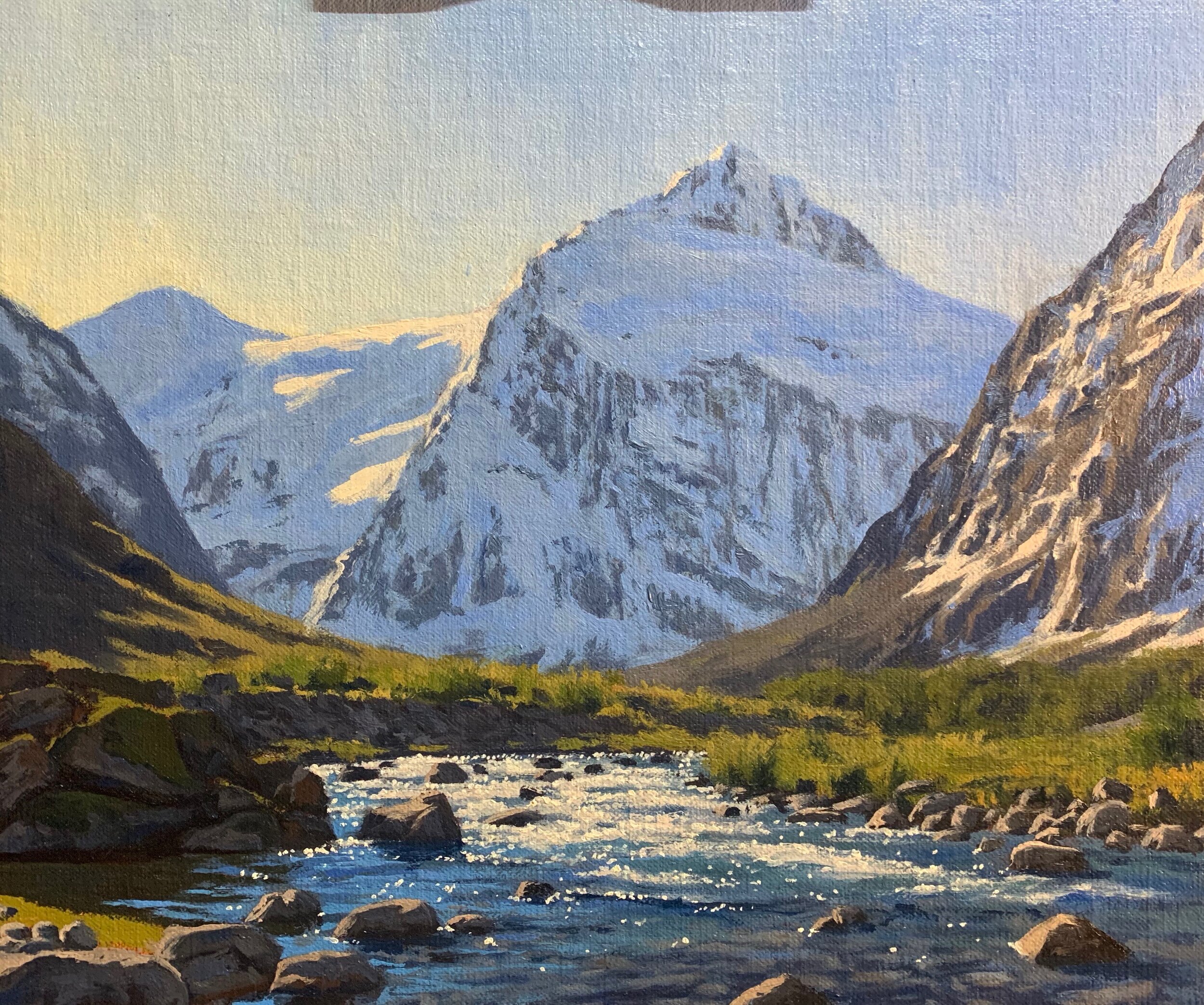
I finish up this painting by adding a few more highlights to the water and to the plants, grasses and trees in the mid ground. I paint the highlights on the moss covered rocks in the foreground on the left side of the painting. For this I mix cadmium yellow with ultramarine blue, titanium white and a little cadmium orange.

Thanks for reading.
